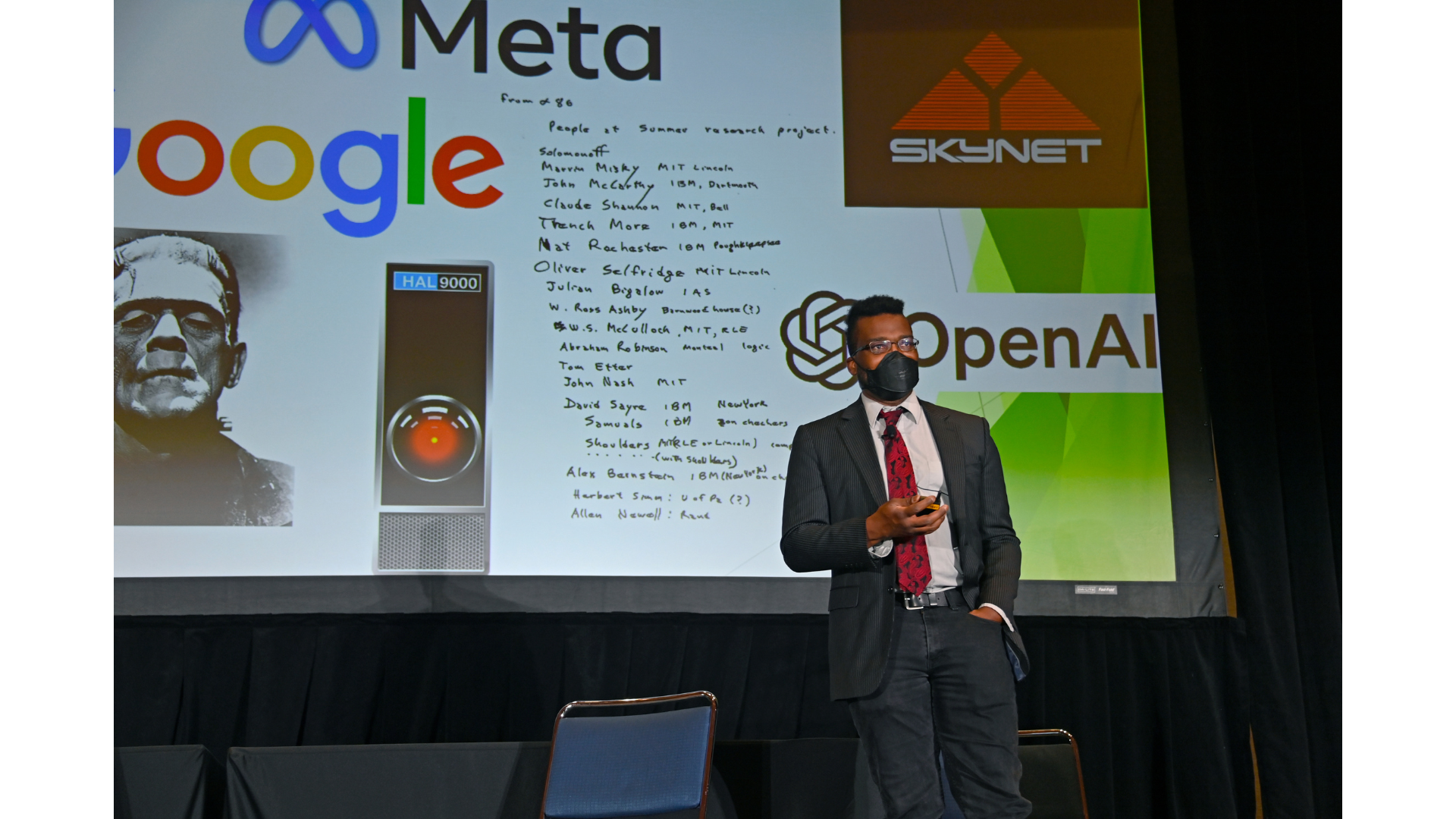A few months ago, I was approached by the School of Data Science, and the University Communications office, here at UNC Charlotte, to ask me to sit down for some coverage my Analytics Frontiers keynote, and my work on “AI,” broadly construed.
Well, I just found out that the profile that local station WRAL wrote on me went live back in June.

My conversations with the writer Shappelle Marshall both on the phone and email were really interesting, and I’m really quite pleased with the resulting piece, on the whole, especially our discussion of how bias (perspectives, values) of some kind will always make its way into all the technologies we make, so we should be trying to make sure they’re the perspectives and values we want, rather than the prejudices we might just so happen to have. Additionally, I appreciate that she included my differentiation between the practice of equity and the felt experience of fairness, because, well… *gestures broadly at everything*.
With all that being said, I definitely would’ve liked if they could have included some of our longer discussion around the ideas in the passage that starts “…AI and automation often create different types of work for human beings rather than eliminating work entirely.” What I was saying there is that “AI” companies keep promising a future where all “tedious work” is automated away, but actually creating a situation in which humans will actually have to do a lot more work (a la Ruth Schwartz Cowan)— and as we know, this has already been shown to be happening.
What I am for sure not saying there is some kind of “don’t worry, we’ll all still have jobs! :D” capitalist boosterism. We’re adaptable, yes, but the need for these particular adaptations is down to capitalism doing a combination of making us fill in any extra leisure time we get from automation with more work, and forcing us to figure a new way to Jobity Job or, y’know, starve.
But, ultimately, I think there’s still intimations of all of my positions, in this piece, along with everything else, even if they couldn’t include every single thing we discussed; there are only so many column inches in a day, after all. Also, anyone who finds me for the first through this article and then goes on to directly engage any of my writing or presentations (fingers crossed on that) will very quickly be disabused of any notion that I’m like, “rah-rah capital.”
Hopefully they’ll even learn and begin to understand Why I’m not. That’d be the real win.
Anywho: Shappelle did a fantastic job, and if you get a chance to talk with her, I recommend it. Here’s the piece, and I hope you enjoy it.
